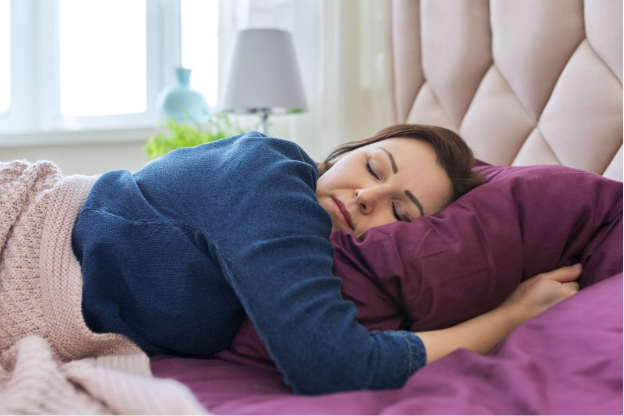Sleep Soundly: Effective Lifestyle Remedies for Sleep Apnea

- Author: Craig Fox
Millions of individuals throughout the globe suffer from sleep apnea. It’s characterized by breathing pauses during sleep and is associated with sleep disruptions and a host of health issues. Sleep apnea can be managed through CPAP therapy. Although, changes in your way of life can also be helpful in managing this sleep disorder.
Some of the cures for sleep apnea that can be implemented into your daily life are discussed in this article.
Maintain a Healthy Weight

Sleep apnea is exacerbated by being overweight or obese. Fat deposits from being overweight can build up in the back of the throat. This can cause difficulty in breathing while you sleep. Which can lead to poor sleep quality and daytime weariness.
Obesity also increases the likelihood of developing of high blood pressure, diabetes, and cardiovascular disease.
According to studies, symptoms of sleep apnea can be alleviated or even be cured by losing excess weight. Losing as little as 10% of body weight can have a dramatic effect on the severity of sleep apnea. Frequent exercise and healthier diet can help shed excess pounds and improve quality of life. Getting in touch with a doctor or a trained dietitian can help you create a tailor-made strategy to lose weight.
Exercise Regularly
When used consistently, exercise can be an effective treatment for sleep apnea. Through regular exercise, throat muscles can be strengthened, which in turn facilitates easier breathing while sleeping. Weight gain is a key cause of sleep apnea, and this treatment can help with that, too. Moderate exercise has been demonstrated to ameliorate sleep apnea and enhance sleep quality. Exercising late in the day might exacerbate sleep apnea, so it’s better to get your sweat on in the morning.
Aerobic workouts like walking, cycling, swimming, and strength training exercises, are good exercises for sleep apnea. Also, yoga and breathing exercises. Begin with low-impact activities, then to more intense and longer sessions is recommended.
If you have any pre-existing medical illnesses, it is important to speak with a doctor before beginning an exercise regimen.
Quit Smoking

One of the most important contributors to developing sleep apnea is smoking cigarettes. As the airways get more inflamed and irritated, sleep apnea becomes more noticeable. Because of the irritation and inflammation, the airway may become narrower, making it difficult to breathe when sleeping. Poor sleep quality and daytime weariness may result from this.
If you want to sleep better and breathe easier at night, quitting smoking is a great place to start. Smoking cessation has been linked to a considerable improvement in sleep apnea symptoms, according to studies. Recognize that quitting smoking is difficult and may require more than one try. Yet, quitting smoking has many advantages, not the least of which is a reduction in sleep apnea symptoms. If you want to live longer and healthier, it’s in your best interest to kick the habit of smoking.
Avoid Alcohol and Sedatives
Sleep apnea can be made worse by alcohol and tranquilizers, which cause the throat muscles to relax. This loosening of muscles can lead to a constricted airway. Which can make it difficult to breathe while you’re sleeping. Sleep breathing disturbances can be heighten by the use of alcohol or sedatives. This can impair the brain’s signals that regulate breathing.
If you have sleep apnea, avoid drinking alcohol or take sedatives unless your doctor specifically prescribes them. Even in people who don’t have sleep apnea, substances like alcohol and sedatives can negatively impact their quality of sleep. Hence, to support healthy sleep, it is advisable to limit or prevent their use.
Practice Good Sleep Habits

Sufficient, high-quality sleep is critical to maintaining both physical and mental well-being. Good sleep hygiene is essential for this to happen. One of the most important routines is to maintain a regular sleep schedule. Sleep and wake up at the same times each day, especially on weekends. Bedtime rituals like a warm bath and a good book can help you get ready for sleep.
An additional important part of proper sleep hygiene is making your bedroom a relaxing place to rest. A nice dim, quiet, and cool bedroom, with supportive mattress and pillows can do the trick. Avoiding caffeine and alcohol beverages close to bedtime. By establishing and maintaining beneficial sleeping routines, people can boost their health and happiness in many ways.
Sleep on Your Side
One of the most common pieces of advice given by doctors and sleep specialists is to sleep on your side. As it makes breathing easier and lessens the likelihood of oxygen deprivation while sleeping, this position can help minimize snoring and sleep apnea symptoms. When you lie on your side, gravity works to keep stomach acid from rising up into the esophagus, reducing the likelihood of acid reflux and heartburn.
Keep your spine in a neutral position while sleeping on your side to maximize the health benefits. A good pillow that helps to keep the head and neck in alignment with the rest of the spine can help with this. Placing a pillow between the knees is another effective way to reduce stress on the hips and lower back, which can lead to significant relief from associated pain and discomfort. In general, lying on one’s side is preferable to other sleeping positions since it enhances the quality of sleep and decreases the risk of various health problems.
Use a Humidifier
There are a number of advantages to using a humidifier. Humidifiers aid by increasing humidity levels in a room, which helps reduce dry skin, nasal congestion, and other respiratory symptoms. When domestic heating systems dry up the air, as they often do in the winter, it can lead to discomfort and even health problems, therefore this is especially crucial. Moist air makes it more difficult for airborne diseases to live and spread, therefore using a humidifier can also help minimize the danger of airborne viruses and bacteria.
Keep your humidifier clean and well-maintained to stop the spread of mold and bacteria. Aside from keeping a close eye on temperatures, humidity levels should also be kept within a healthy range to prevent the formation of mold and other allergies. In conclusion, a humidifier can be a straightforward and efficient method to enhance the quality of indoor air for the benefit of health and comfort.
CPAP Therapy
Sleep apnea has been making the lives of millions of people miserable due to poor sleep quality. CPAP (Continuous Positive Airway Pressure) therapy has been the most widely used treatment option. Improved quality of life, cardiovascular health, and blood pressure are just some of the areas where this treatment excels.
Maintaining a healthy weight, regular exercise, quitting smoking, avoiding alcohol and sedatives, may help improve your quality of life.
Although, adjusting to CPAP therapy may be difficult at first. V-Com, CPAP therapy, or changes to your daily routine might help you. Your V-Com device provides additional comfort and support to your CPAP treatment.
Ready to get started?
Optimize and improve your sleep apnea treatment with V-ComTM, no prescription required!
30 Day Money-Back Guarantee
